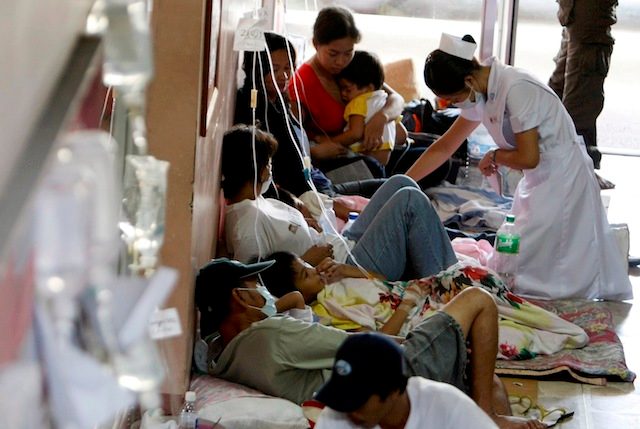SUMMARY
This is AI generated summarization, which may have errors. For context, always refer to the full article.

MANILA, Philippines – What can patients do when hospitals still deny them initial medical treatment despite a law that already penalizes such a refusal?
If Risa Hontiveros‘ Senate Bill 216 becomes a law, patients could soon run to a “Sumbungan Board” or a Health Facilities Oversight Board that will look into such complaints.
“We want to prioritize the needs of our patients especially during emergency situations. The Sumbungan Board will provide a clear channel for redress of grievances by patients and ensuring their rights and welfare,” Hontiveros, chair of the Senate committee on health and demography, said in a statement on Wednesday, August 17.
“In our quest for equitable healthcare system, we should be more sensitive to the plight of our patients, especially the indigents. Gamutin muna, saka na kumita (Treat them first, think about earning later),” the senator added.
Even during the campaign season, Hontiveros already vowed to give more teeth to Republic Act 8344 or the Anti-Hospital Deposit Act to ensure no hospital will refuse to treat patients in emergency cases just because they cannot pay a deposit.
Under the proposed Senate Bill 216, the so-called “Sumbungan Board” will be composed of a representative from the Department of Health (who will act as chair), and other representatives from the Philippine Medical Association, private health institutions, and non-governmental organizations involved in public health and advocacy.
The bill seeks to increase the penalties for hospitals that will require a deposit or other forms of advance payment before agreeing to confine or provide medical treatment to a patient.
According to the bill, penalties for violating Republic Act 8344 should be from a minimum of P20,000 to P100,000, to a maximum of P500,000 to P1 million, exclusive of damages that may be rewarded to a patient who will file a complaint against the hospital.
Aside from these penalties, the bill also wants the revocation of the health facility’s operating license after 3 repeated violations.
Under the bill, appropriate initial medical treatment includes women in active labor who are at risk of miscarriage or fetal distress.
“We will not let our citizens [be] denied emergency medical care just because they are poor. Despite inroads being made towards advancing universal health in the past decade, health care in the Philippines largely remains inaccessible to the poor,” Hontiveros added.
On Tuesday, August 23, Hontiveros is set to call for a committee hearing on the bill to “determine the loopholes in implementation and take into consideration the best and worst practices of the law.”
Before winning a Senate seat, Hontiveros served as director of the Philippine Health Insurance Corporation, appointed to the post by former president Benigno Aquino III in June 2015. – Rappler.com
Add a comment
How does this make you feel?
There are no comments yet. Add your comment to start the conversation.